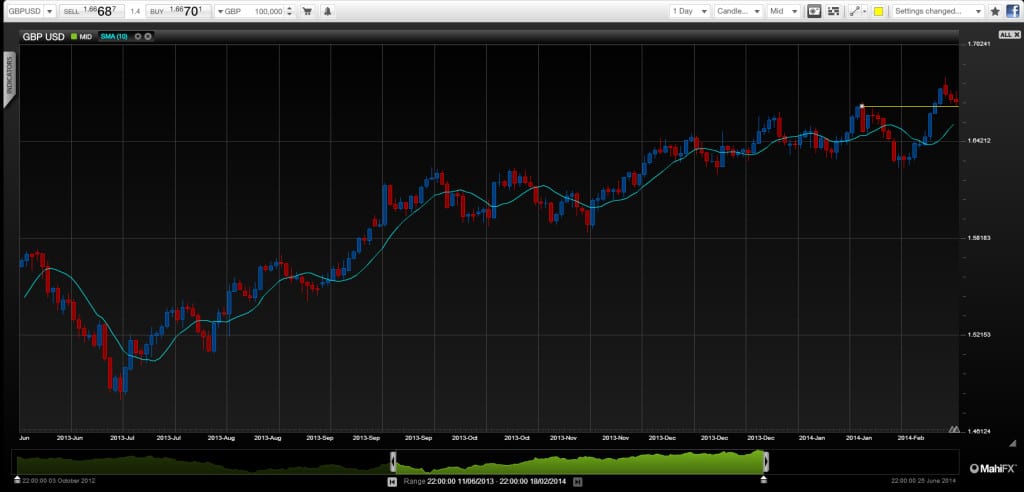Central banks are shifting their policies in response to signs that economies are returning to growth. In many ways it looks like a comforting return to the ‘old normal’ when a broad range of indicators influenced currencies. If so that suggests USD weakness, but beware the three bears.
Quantitative easing is being wound down, except in Japan, forward guidance is looking rather faddish and the focus on single economic measures, such as unemployment – all natural responses to the financial crisis — are starting to look obsolete.
Enter a return to focussing on broad measures, such as inflation, capacity utilisation, productivity, GDP numbers and so on alongside employment. All the indicators central banks used to take into account before 2008 when economic growth was robust and consistent and inflation relatively low.
By Justin Pugsley, Markets Analyst MahiFX. Follow MahiFX on twitter
If indeed this goldilocks tale plays out then GBP/USD should continue to make gains even surpassing 1.70. EUR/USD should also pick up as systemic concerns melt away and the Eurozone’s current account surplus should continue increasing. Recently battered emerging markets and their currencies will once again become ‘must have’ fashion accessories in the investment world.
In other words a return to the ‘old normal’ and a very likely widening of the US current account deficit should see USD weaken. That combination should prove more potent than the Federal Reserve’s taper.
The Goldilocks currency – GBP/USD more gains in store?
…and now for the three bears
In the tale of Goldilocks there are also three beers, but in this story they are far from friendly.
Indeed, they have the potential to shatter this fairy tale.
And they are:
- The rapid ageing of the populations of developed countries where the number of pensioners is quickly catching up with the number of workers – this spells much lower long-term economic growth possibly accompanied by deflation. Japan is a case in point.
- Productivity growth has slowed and in many countries it is positively anaemic. To support growth a productivity revolution is needed and soon.
- The West isn’t the only group of countries to indulge in fairy tales. So has China. Much of its economic growth in the last five years has been on the back of a huge credit boom, a misallocation of resources and rampant speculation. If that bubble bursts violently, as they often do, the consequences will be felt globally.
Therefore the current economic recovery in developed economies could still run into lethargy.
And merely getting today’s not very spectacular growth numbers has required one of the biggest stimulus programmes in human history – some $33 trillion between 2007-2012 according to the Bank of International Settlements.
A lurch back to the ‘new normal’ will quickly kill any ‘animal’ spirits sending traders and investors scurrying for the safety of USD and US Treasuries. Even JPY would likely get a temporary lift as Japanese investors rush to repatriate their funds from hostile global markets.
Further reading: UK unemployment figures falling: A sign of things to come for the job market?

